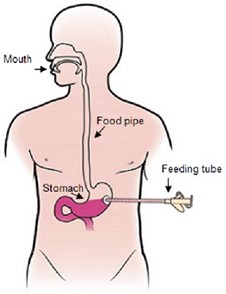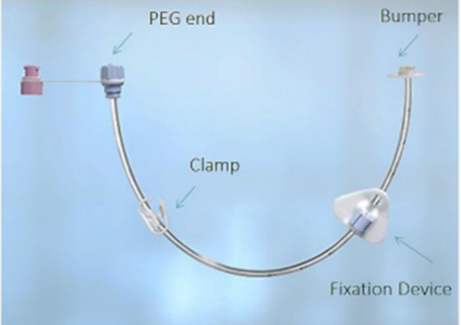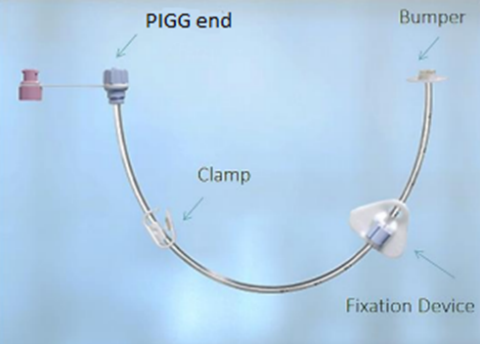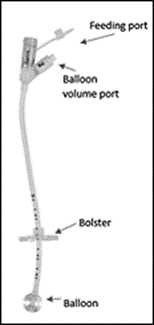What is lactose intolerance?
Lactose intolerance means that your body cannot digest lactose. Milk is made up of fats, proteins and sugar (carbohydrate). Lactose is a type of sugar (carbohydrate) that is in milk and milk products.
What are the symptoms?
- Wind
- Bloating
- Tummy ache
- Stomach cramps
- Tummy rumbling
- Nausea (feeling sick)
- Diarrhoea (loose stools)
What are the causes?
Lactose intolerance happens when your body does not make enough lactase.
Lactase is an enzyme that breaks down lactose; it is made in the lining of the small bowel. Enzymes break down sugars into smaller parts, so that they can pass from your gut into your body.
Types of lactose intolerance
There are two types of lactose intolerance: primary and secondary.
Primary lactase deficiency
Primary lactase deficiency is a lifelong genetic condition (runs in families). It is most common in people from Africa and Asia, but anyone can have it. 2 out of 3 people in the world have this. You may produce lactase as a child, but less lactase as you grow up.
Secondary lactase deficiency
Secondary lactase deficiency is usually short term. It is due to illnesses that affect your small bowel such as coeliac disease, inflammatory bowel disease (IBD), gastrointestinal infections and abdominal surgery.
Lactose cannot be broken down or absorbed without lactase. It will pass into the colon instead. In the colon it will be fermented which makes gas. Lactose also pulls water into the bowel, which is why it can also cause loose stools.
Lactose intolerance is not the same as an allergy. If you have lactose intolerance you may be able to manage some lactose in your diet in smaller amounts. However, if you have a milk protein allergy you need to strictly avoid all milk products.
Some people do not make the lactase enzyme but do not get bad symptoms. Other people can make the lactase enzyme but still have bad symptoms. Lactose may make you feel ill but it will not do any long-term harm or hurt your body. You need to work out how much lactose is right for you and your symptoms.
Diagnosis
Hydrogen Breath Test
In this test, you drink a special high lactose drink and they test how much hydrogen gas is in your breath. If your body does not break the lactose down, the bacteria that live in your colon will ferment it. This makes lots of hydrogen gas, so a high level of hydrogen in your breath means you have lactose intolerance.
The test results are not perfect. Some people have a positive breath test but no symptoms. Some people have a negative breath test but still have symptoms. Sometimes a lactose free trial is better.
Lactose free trial
This is a good choice instead of the breath test.
Stop having lactose for a short time (about 2-4 weeks). If you do not feel better, then you do not have lactose intolerance and you can start having lactose again. You can talk to your doctor or dietitian about what else could help your symptoms.
Which foods contain lactose?
Lactose is in milk, including breastmilk, cow’s milk, sheep’s milk and goat’s milk. All products containing milk or made from milk contain lactose.
Everyone will tolerate a different amount of lactose. Most people can have a low lactose diet, but some people will need to be stricter. For example, you might be able to have a splash of milk in tea, but you might have symptoms if you had a milky coffee.
- Start by strictly avoiding lactose.
- If your symptoms get better, you can slowly increase your lactose intake.
- Most people can have some lactose. Try to spread it out through the day.
The information below shows how much lactose is in different foods.
The amount of lactose in some foods can vary. There is not an exact amount of lactose in the table for these foods, but you can see which foods are lactose free, low in lactose or high in lactose.
Food groups
If you would like a printed copy of this information in a table format, please speak to your clinician.
Milk
High lactose (more than 2g /100g)
- Cow’s milk: 4.6 - 4.8g /100g
- Sheep’s milk: 5.1g /100g
- Goat’s milk: 4.4g /100g
- Condensed milk: 12.3g /100g
- Evaporated milk: 12.7g /100g
- Dried milk powder: 52.9g /100g
- Cream alternative (Elmlea): 4g /100g
Low lactose (up to 2g /100g)
- Creme Fraiche: 2g /100g
- Cream: 1.7 - 2.2g /100g
- Soured cream
Lactose free
- Oat milk
- Rice milk
- Soya milk
- Coconut milk
- Hazelnut milk
- Almond milk
- Tiger nut milk
- Lactose free milk
- Hemp milk
Other dairy
High lactose (more than 2g /100g)
- Yoghurts: 3.6 - 4.7g /100g
- Lassi: 8.6g /100g
- Fromage frais: 2.9 - 4.1g /100g
- Custard: 4.6 - 5.4g /100g
- Rice pudding: 3.9 - 4.9g /100g
- Mousse: 5.7g /100g
Low lactose (up to 2g /100g)
Lactose free
- Soya desserts / dairy free yoghurt style
- Lactose free yoghurts
Cheese
High lactose (more than 2g /100g)
- Cottage cheese: 3.5g /100g
- Processed cheese: 6.5g /100g
- Cheese spread, e.g. Philadelphia or supermarket own versions
- Ricotta
- Mascarpone: 4.5g /100g
Low lactose (up to 2g /100g)
- Hard cheese: 0.1g /100g
- Blue cheese: 1.0g /100g
- Ripe / rind cheeses: 0.9g /100g
- Mozzarella: <0.1g /100g
- Goat’s cheese: 0.9g /100g
- Feta: 1.4g /100g
- Halloumi: 1.5g /100g
- Lactose free cheese: <0.1g /100g
- Low / reduced fat cheese
- Brie: <0.1g /100g
- Cheddar: 0.1g /100g
Lactose free
- Dairy free cheese alternative
Cereals
High lactose (more than 2g /100g)
- Yoghurt coated cereal bars
- Porridge made with milk
Lactose free
Bread
Low lactose (up to 2g /100g)
- Milk bread
- Some gluten free bread contains milk
Lactose free
Rice
High lactose (more than 2g /100g)
- Rice pudding: 3.9 - 4.9g /100g
Low lactose (up to 2g /100g)
Lactose free
Pasta
High lactose (more than 2g /100g)
- Macaroni cheese
- Ricotta ravioli
- Lasagne
Lactose free
- Pasta with tomato sauce
- Check free from section for dairy free white sauce, macaroni cheese or lasagne
Treats/snacks
High lactose (more than 2g /100g)
- Milk chocolate
- White chocolate
- Ice cream
- Chocolate cake bars
Low lactose (up to 2g /100g)
- Cheese and onion crisps
- Cheesy puffs / corn snacks
- Biscuits
- Chocolate coated / dipped biscuits
- Cake
- Cheese crackers: <0.3g /100g
- Fudge / toffee: <1.5g /100g
- Pastry made with butter: 3.3g /100g
Lactose free
- Most crisps
- Sorbet
- Dairy free ice cream
- Jelly
Fats
Low lactose (up to 2g /100g)
- Butter
- Ghee
- Reduced fat spreads
- Margarine
Lactose free
- Vegetable oils
- Coconut oil
- Lard
- Dairy free spreads
Meat, fish, eggs and alternatives
High lactose (more than 2g /100g)
Low lactose (up to 2g /100g)
- Scrambled egg made with butter / milk
- Battered fish (some does have milk in, some does not)
Lactose free
- Meat
- Fish
- Eggs
- Tofu
- Quorn
- Vegan meat alternatives
Sauces / condiments
High lactose (more than 2g /100g)
- White sauce
- Ready made custard
Lactose free
- Jam
- Marmite
- Peanut butter
- Mayonnaise (check as some brands contain milk or cream)
- Ketchup
- Vinegar
- Custard powder
- Gravy
- Spices / herbs
- Chutney / pickle
Fruit, veg, nuts, pulses
High lactose (more than 2g /100g)
- Yoghurt coated dried fruit / nuts
Low lactose (up to 2g /100g)
- Mashed potato made with butter / milk
- Instant mash
- Soup containing cream
Lactose free
- All fruit and vegetables
- Baked beans
- Pulses
- Chips, potato waffles, hash browns
- Nuts
Checking labels
It is the law that if a product contains milk products they will be listed in bold, underlined, or highlighted.
The ingredients list is in weight order, with the largest first. If it is near the bottom of the list then there is a smaller amount in the food. If milk is one of the last ingredients in a long list, it might be fine.
Vegan foods are lactose-free.
Check labels for:
- Milk
- Milk solid
- Skimmed milk powder
- Cream
- Butter
- Buttermilk
- Whey
“May contain”
Most people with lactose intolerance can have a food that says “may contain milk” or “made in a factory that handles milk” or “not suitable for people with a milk allergy”.
Confusing ingredients
Casein and milk protein are sometimes listed within the ingredients and are proteins found in milk; you can have both of these ingredients. Some people have an allergy to milk protein, but this is not the same as lactose intolerance.
Medications
Some tablets contain very small amounts of lactose. Do not worry unless you take lots of tablets.
You can talk to the pharmacist about changing to lactose free medicine. Do not stop taking a medication without speaking to your doctor or pharmacist first. Lactulose (a laxative) is not the same as lactose.
Nutrients
Dairy products provide some key nutrients. You need to make sure you get enough of these. Remember that most cheese is low in lactose so it may be okay for you.
Vitamin B12
You need vitamin B12 to help with energy release, healthy blood and the nervous system.
Non-dairy sources of vitamin B12:
- meat
- eggs
- fortified breakfast cereal
- yeast extract (marmite)
- salmon
- cod
Calcium
You need calcium for bone health. Milk and dairy products are the main sources of calcium.
- Lactose-free milk contains the same amount of calcium as cow’s milk.
- If you use a milk alternative (oat/soya/coconut/nut milk), make sure it has added calcium.
- Organic milk alternatives do not have calcium added to them.
- Tinned fish with bones (sardines, pilchards, salmon) are very high in calcium.
- Oranges, almonds, brazil nuts and tofu also contain calcium but it is not so easily absorbed.
You may need to take a calcium tablet if your bone health is high risk such as:
- Breastfeeding mothers
- Post-menopausal women
- Coeliac disease
- Inflammatory bowel disease
Vitamin D
You need vitamin D to use calcium.
The body makes vitamin D from sunlight on your skin. In the UK there is not enough sunshine in autumn or winter to make all the vitamin D that we need.
Consider taking a vitamin D supplement daily in autumn and winter.
Vitamin D is in oily fish, red meat, offal, and egg yolks. Some breakfast cereals, margarines and non-dairy milk alternatives have vitamin D added.
Protein
You need protein for growth and repair, and to keep you strong.
Some lactose free milks have more protein than others. Lactose free cow’s milk and soya milk contain the most protein; oat and nut milks contain the least protein.
Eat 2 - 3 portions of high protein foods daily.
Non-dairy sources of protein include meat, fish, eggs, beans/pulses, tofu and nuts.
Meal ideas
Breakfast
- Cereal with lactose free milk
- Toast with dairy free spread and jam
Lunch
- Sandwich with dairy free spread and tuna/ ham/ chicken/hard cheese and salad
- Homemade soup made without milk or cream
- Jacket potato with dairy free spread, tuna/baked beans/hard cheese and salad
- Eggs or baked beans on toast with dairy free spread
Evening meal
- Meat/chicken/fish with potatoes or rice and vegetables
- Omelette/frittata with side salad
- Spaghetti Bolognese
- Curry made without yoghurt, with rice and dahl
Snacks
- Fruit
- Nuts
- Crisps (not cheese and onion)
- Oat cakes/ rice cakes/ crackers with dairy-free spread
- Tea, coffee, squash, lactose free milk
- Dark chocolate
- Biscuits
Lactase enzymes
You can buy lactase enzymes from pharmacies, health food shops and online. They may reduce your symptoms if you do eat lactose by replacing the lactase that your gut does not make. There is not much research on how well they work.
Can I ever eat foods containing lactose?
Most people find that their symptoms get better after cutting out lactose for 4 weeks. If you have secondary lactose intolerance, it can take longer.
Once your symptoms get better, try to put some lactose back into your diet. Start with a very small amount and increase slowly. Most people can manage some lactose but everyone has a different limit.
- You should start by trying foods that are lower in lactose such as hard cheese.
- Try a small amount and increase it gradually until you find the level you can manage.
- Then you can try foods that are higher in lactose, like milk.
- Start with a splash of milk in your tea/coffee or on your cereal and build it up slowly.
- When you start to get symptoms, you have found your limit.
What if symptoms don’t improve?
If you are lactose intolerant then your symptoms should get better when you take lactose out of your diet.
If you do not feel better, then you do not have lactose intolerance and you can start having lactose again. You can talk to your doctor or dietitian about what else could help your symptoms.
Risk of anaphylaxis (serious allergic reaction) when reintroducing lactose
If you have ‘atopy’ (eczema, asthma, other allergies, hay fever), there is a very small risk that you can develop an allergy to milk protein if you completely avoid it for a long time.
To avoid this risk you should try to keep some low lactose dairy products in your diet such as hard cheese.






